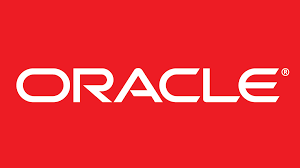After revisiting “Parking in India” from 2012, we return to explore more from the Foreign Corrupt Practices Act (FCPA) recidivist Oracle Corporation. We previously reviewed the bribery schemes in general and how they worked in practice. Given not simply the recidivist status but the nature and location of the bribery schemes, one might reasonably ask questions about the resolution. Quite simply, how did Oracle achieve the result they did?
The Comeback
Under the FCPA Corporate Enforcement Policy, as developed by the Department of Justice (DOJ), the requirements for leniency were (1) self-disclosure, (2) extensive cooperation during the investigation and (3) thorough remediation up to the conclusion of the matter. Under the recent Monaco Memo, this prong 3 was further explained as creating a compliance program to address the issues which led to the compliance program and then testing that program prior to the conclusion of the resolution. While the Securities and Exchange Commission (SEC) does not have a similar written Policy they have followed the DOJ’s lead on since the implementation of the FCPA Corporate Enforcement Policy in November 2017.
In the 2022 Order, it specified there was some type of self-disclosure. The Order stated, “the Commission [SEC] considered that Oracle self-reported certain unrelated conduct, remedial acts it undertook, and cooperation afforded the Commission Staff.” This is one of the most oblique references to self-disclosure seen in an FCPA enforcement action. It is not clear what the ‘unrelated conduct’ might have been nor how it related to the FCPA violations. Whatever this unrelated conduct was, it was self-disclosed to the SEC and apparently that self-disclosure was enough to satisfy the SEC that self-disclosure had occurred.
The next requirement is thorough cooperation with the SEC during the investigation. Here the Order stated, “Oracle’s cooperation included sharing facts developed in the course of its own internal investigations, voluntarily providing translations of key documents, and facilitating the staff’s requests to interview current and former employees of Oracle’s foreign subsidiaries.” Each one of these factors should be digested by every compliance officer to understand what the SEC thinks is important. It may be different from the DOJ, particularly after the Monaco Memo, but these actions are all clearly important to the SEC.
Finally, of course, is the remediation. Here the Order specified several actions in greater detail than in most Orders. The Order stated, “Oracle’s remediation includes:
- terminating senior regional managers and other employees involved in the misconduct and separating from employees with supervisory responsibilities over the misconduct;
- terminating distributors and resellers involved in the misconduct;
- strengthening and expanding its global compliance, risk, and control functions, including the creation of over 15 new positions and teams at headquarters and globally;
- improving aspects of its discount approval process and increasing transparency in the product discounting process through the implementation and expansion of transactional controls;
- increasing oversight of, and controls on, the purchase requisition approval process;
- limiting financial incentives and business courtesies available to third parties, particularly in public sector transactions;
- improving its customer registration and payment checking processes and making other enhancements in connection with annual technology conferences;
- enhancing its proactive audit functions;
- introducing measures to improve the level of expertise and quality of its partner network and reducing substantially the number of partners within its network;
- enhancing the procedures for engaging third parties, including the due diligence processes to which partners are subjected;
- implementing a compliance data analytics program; and
- enhancing training and communications provided to employees and third parties regarding anti-corruption, internal controls, and other compliance issues.”
Resources
These changes appear to be extensive and potentially significant within the greater Oracle compliance program. There was increased resources made available to Oracle through an increase in head count (15 new positions), restructuring of compliance groups and creation of new compliance teams. Additionally, the implementation of a compliance data analytics program would also fall under additional resources. Finally, Oracle moved to more proactive auditing.
Discipline
There were terminations of Oracle employees including “senior regional managers and other employees involved in the misconduct” in addition to the termination of distributors and resellers involved in the misconduct. While not tied to a disciplinary role but clearly in the less is more approach Oracle substantially reduced the number of business partners within its network.
Training
Next was in the area of training. There was enhanced “training and communications provided to employees and third parties regarding anti-corruption, internal controls, and other compliance issues.” This would seem to indicate enhanced training for those remaining business partners.
Internal Controls
Finally, there was the area of internal controls enhancement. Here there were improvements in the following areas: (a) discounting by improving aspects of the Oracle discount approval process and increasing transparency in the product discounting process through the implementation and expansion of transactional controls; (b) procurement through the increased oversight of, and controls on, the purchase requisition approval process; (c) removal of perverse incentives by limiting financial motivations and business courtesies available to third parties; (d) basic GTE by improving its customer registration and payment checking processes and making other enhancements in connection with Oracle technology conferences.
DOJ
Obviously, recidivist behavior is one of the key areas the DOJ focused on in the Monaco Memo. It is one of the factors the DOJ assesses in any resolution of an enforcement action. The Monaco Memo does note that civil penalties over five years old will be given lesser weight so perhaps the 2012 SEC FCPA enforcement action involving Oracle’s conduct in India plays into the SEC analysis here. There is also the question of a monitor for a company with recidivist behavior which Oracle avoided in this SEC resolution. In the Monaco Memo, two of the areas of evaluation are:
- Whether, at the time of the resolution and after a thorough risk assessment, the corporation has implemented an effective compliance program and sufficient internal controls to detect and prevent similar misconduct in the future;
- Whether, at the time of the resolution, the corporation has adequately tested its compliance program and internal controls to demonstrate that they would likely detect and prevent similar misconduct in the future;
While the SEC Order lays out in detail the remediation, there is no information on any testing performed by Oracle on the new components of its compliance program or on its controls.
As yet there is no information on a DOJ resolution. Given the tenor of the most recent DOJ announcements including the Monaco Memo, and the subsequent speech by Principal Associate Deputy Attorney General Marshall Miller and speech by Assistant Attorney General Kenneth A. Polite, it appears that recidivism will be greatly frowned upon. Also, unclear would be whether the DOJ would require a monitor based upon the remediation made by Oracle as reported in the SEC Order. As noted, there is no indication of testing of the compliance program enhancements. All in all, lots of questions for the DOJ and we will have to wait for a DOJ resolution to see if we can begin to answer some of them.
Please join me tomorrow where I conclude this series by considering what does it all mean for the compliance professional.









